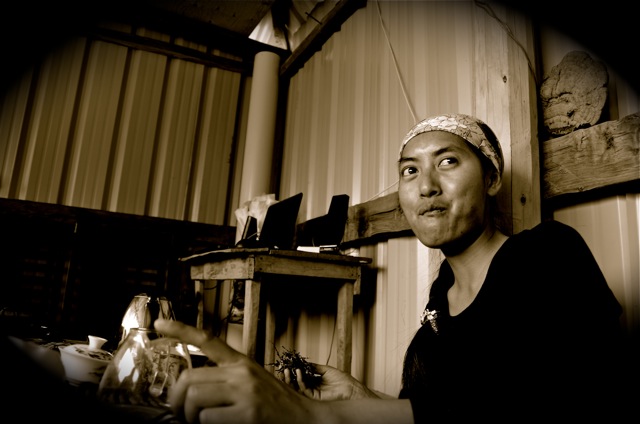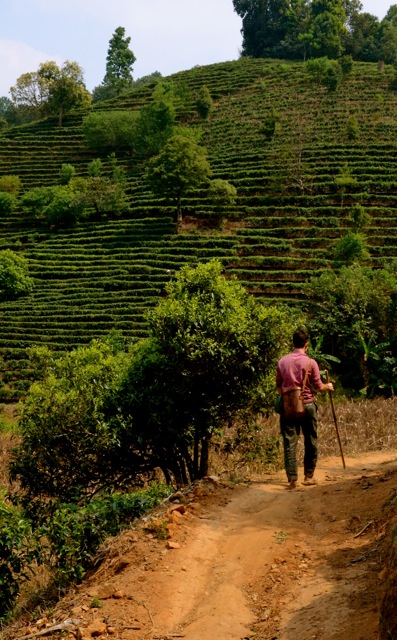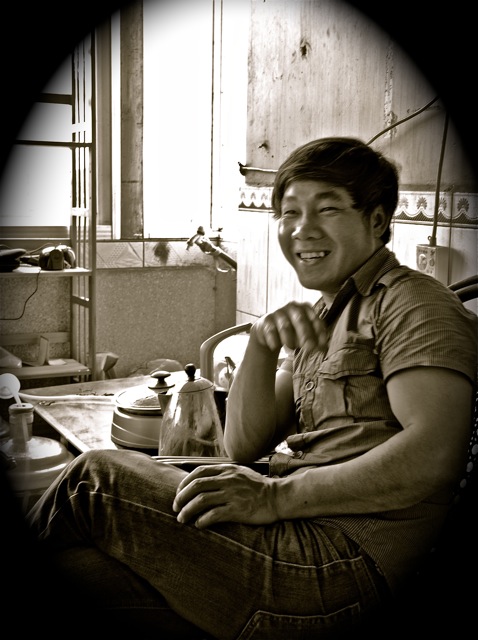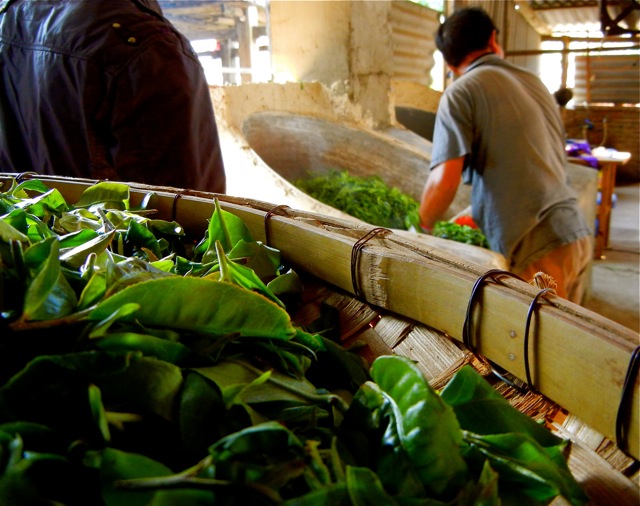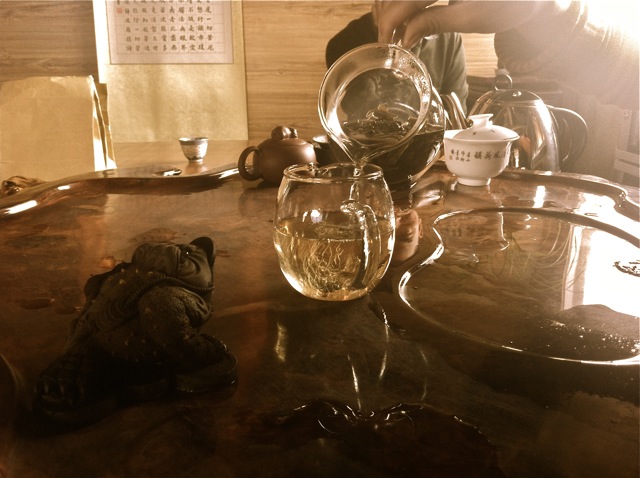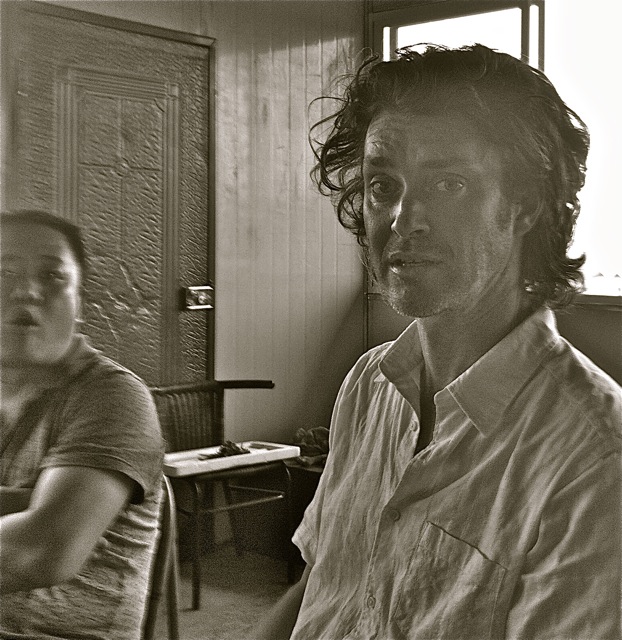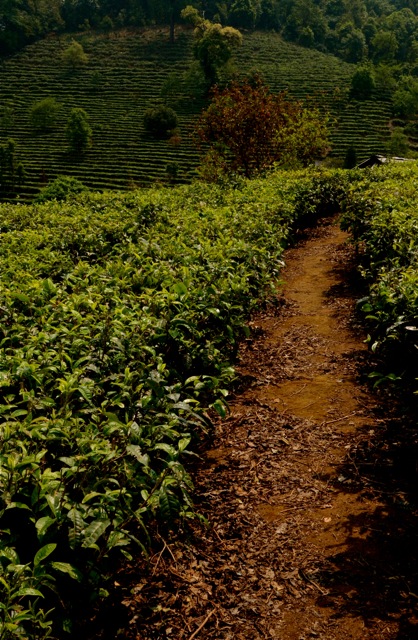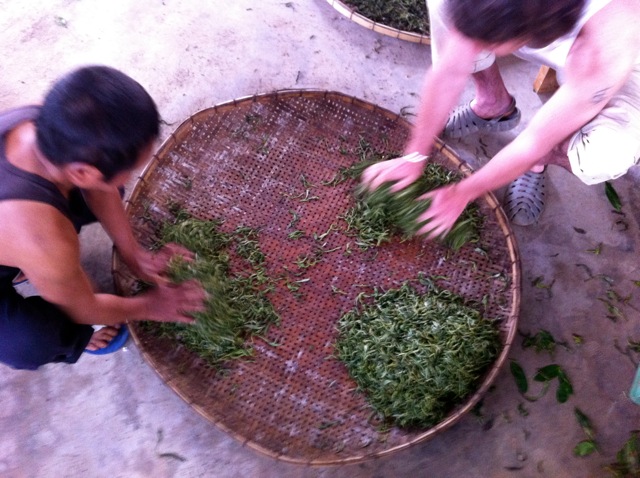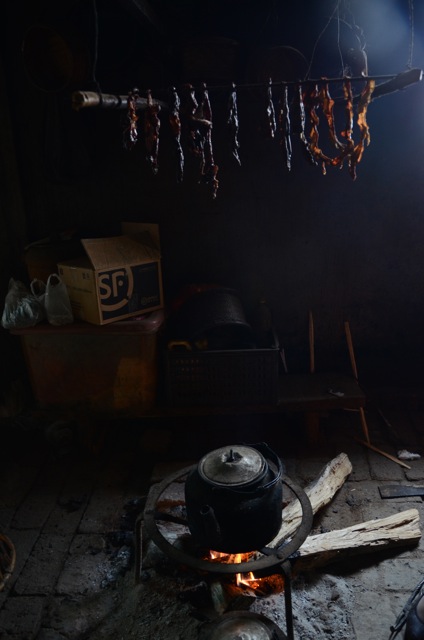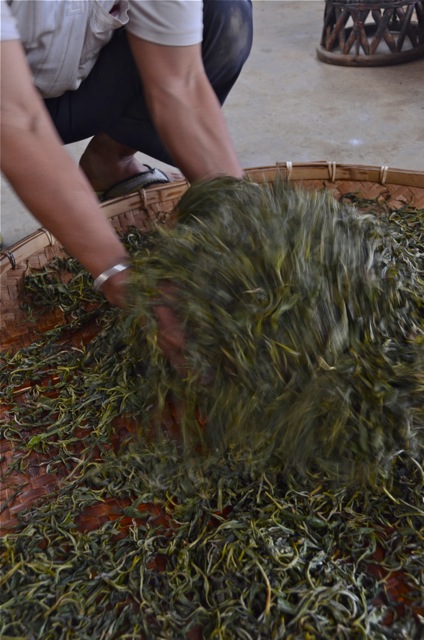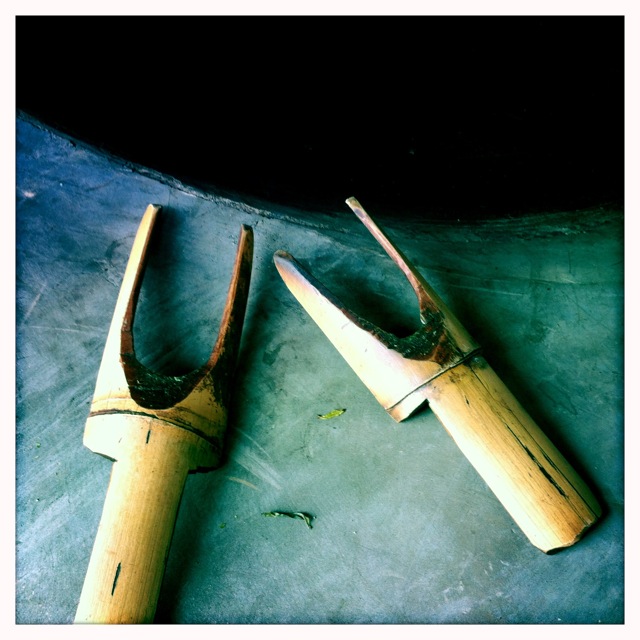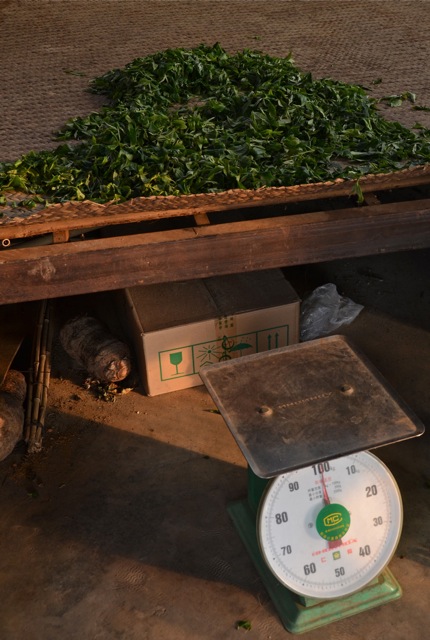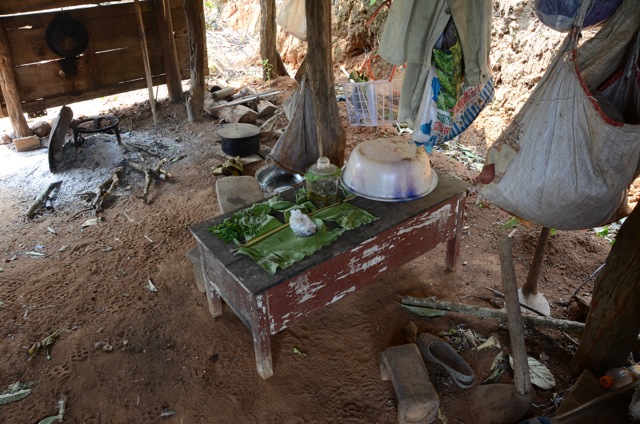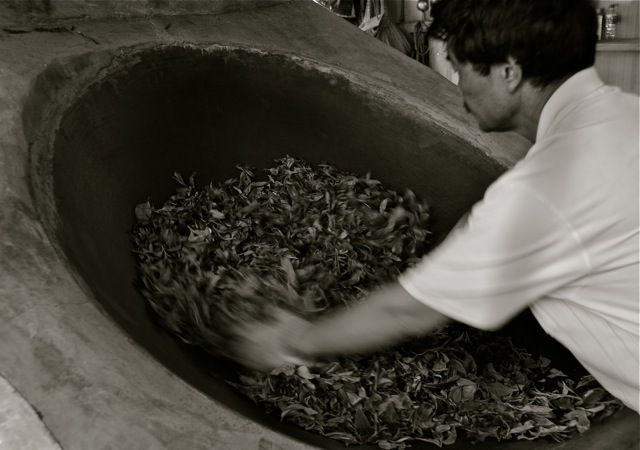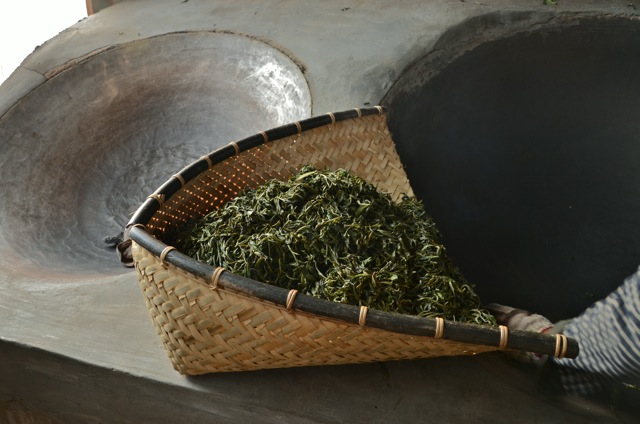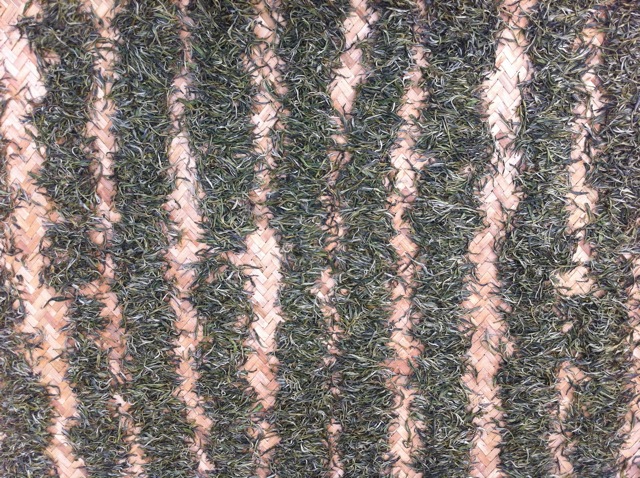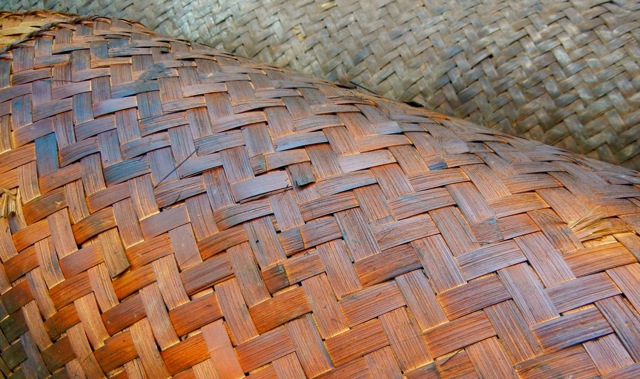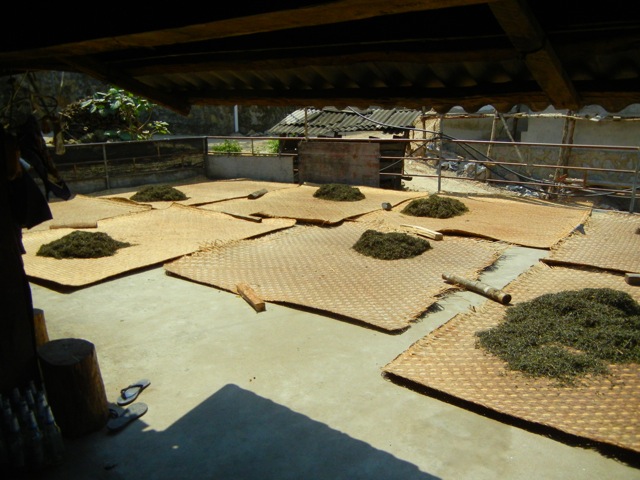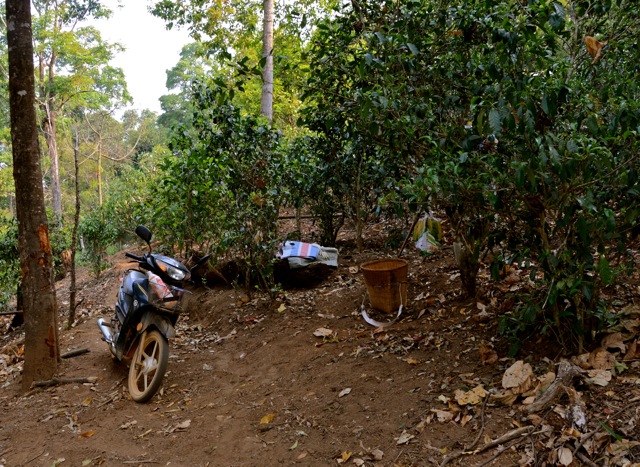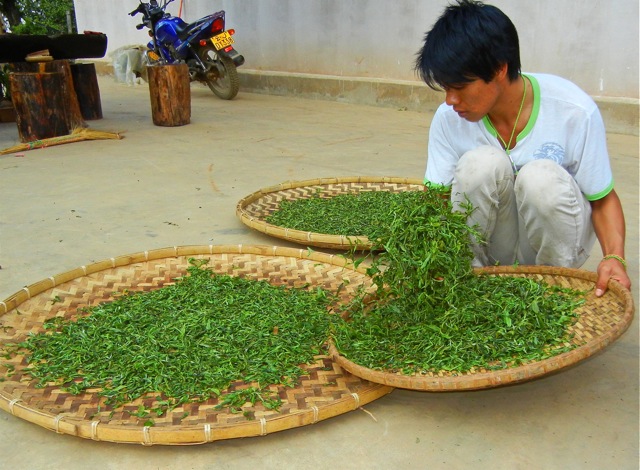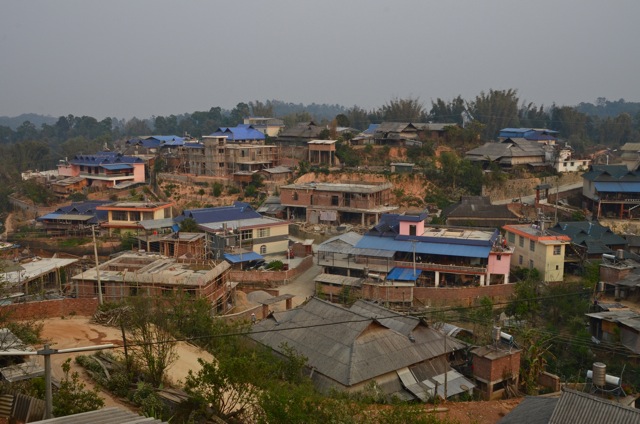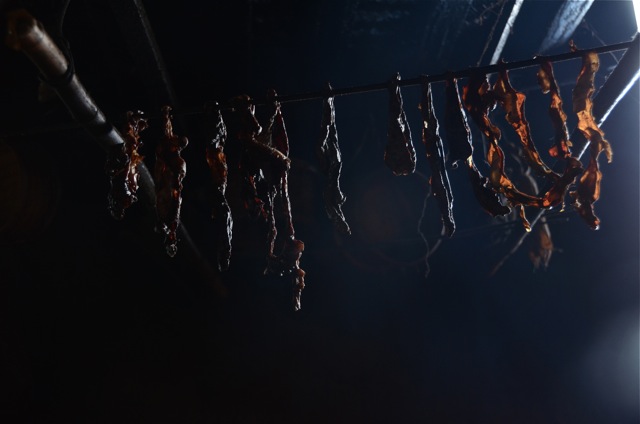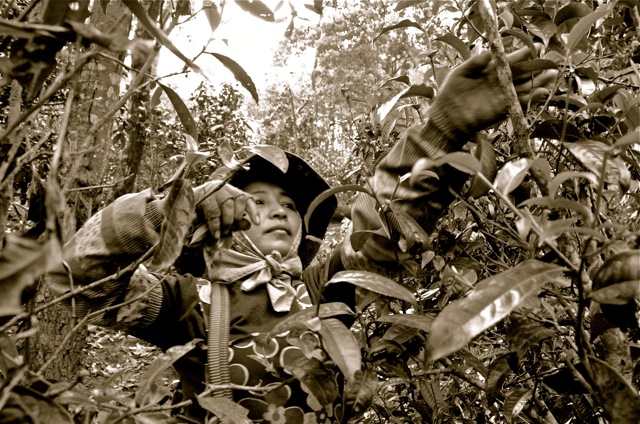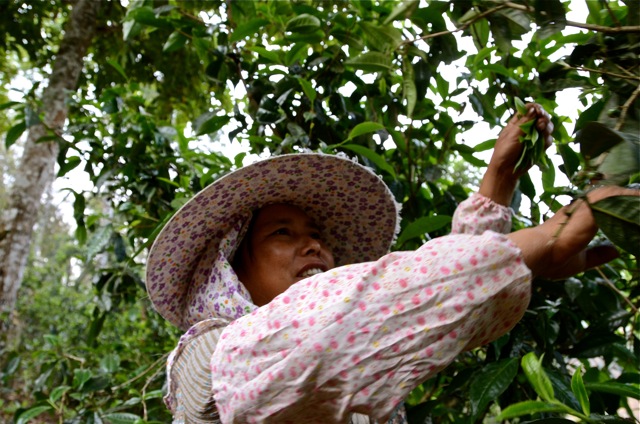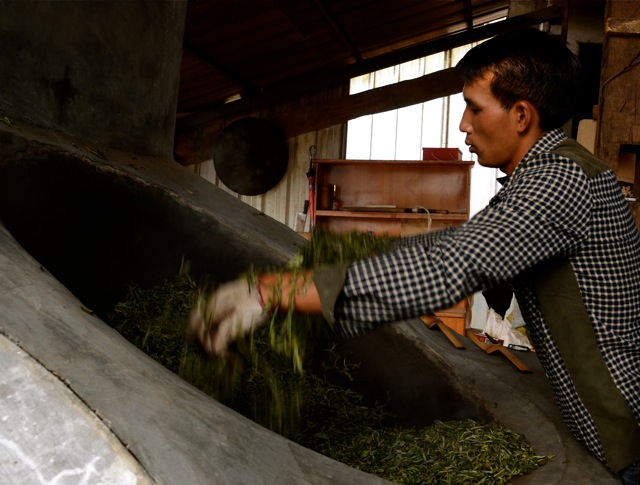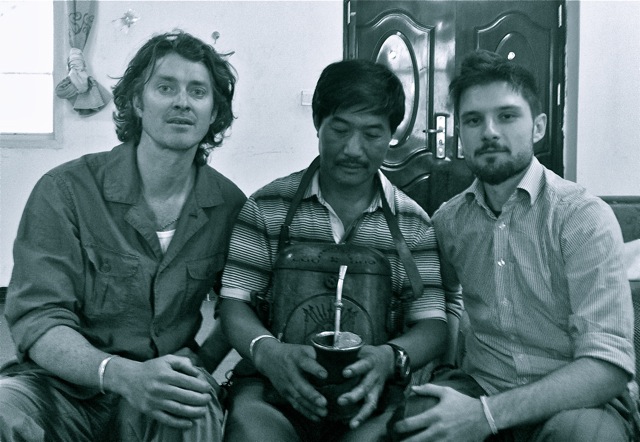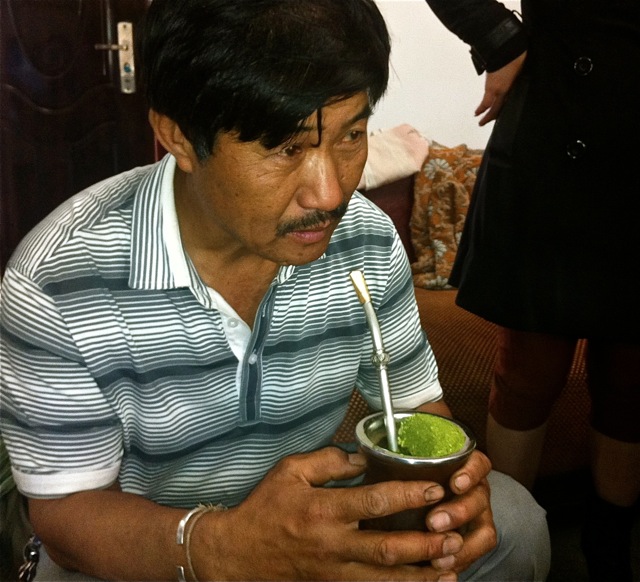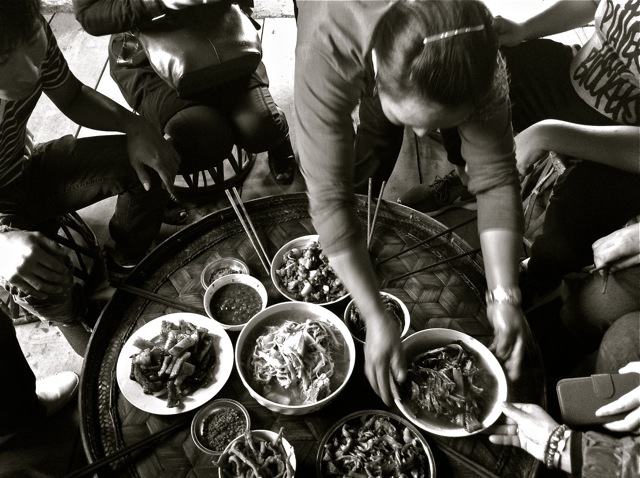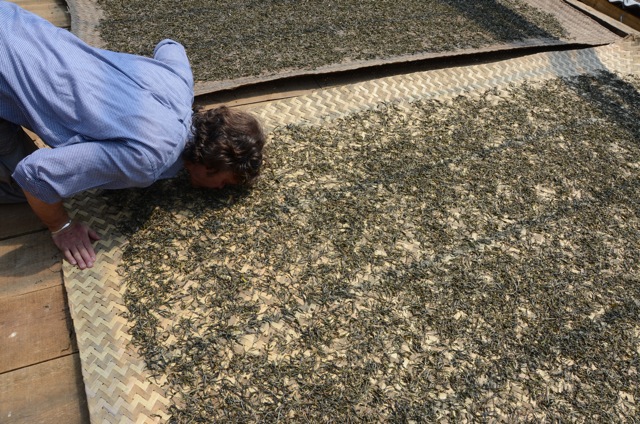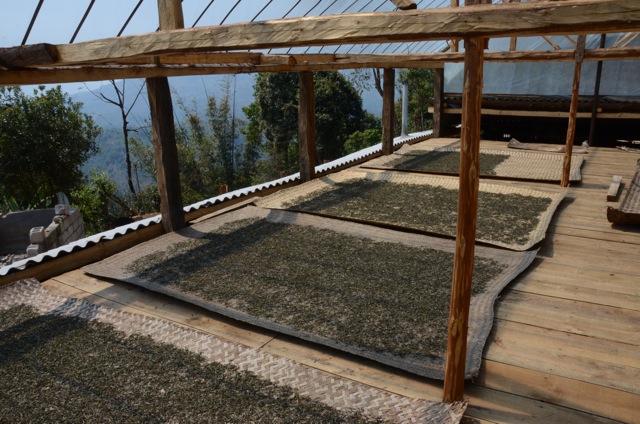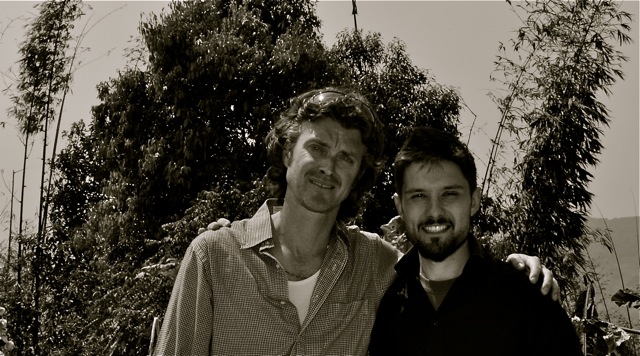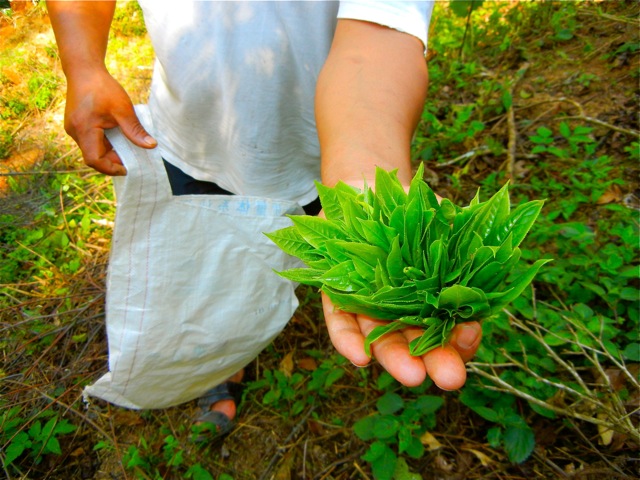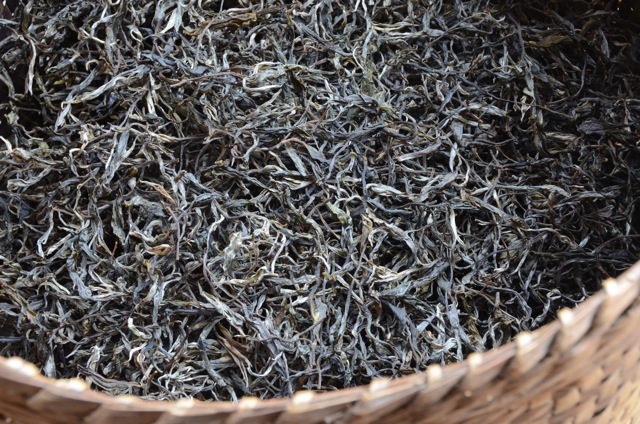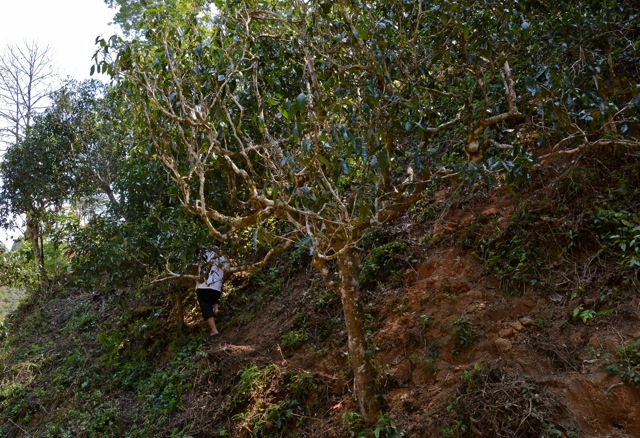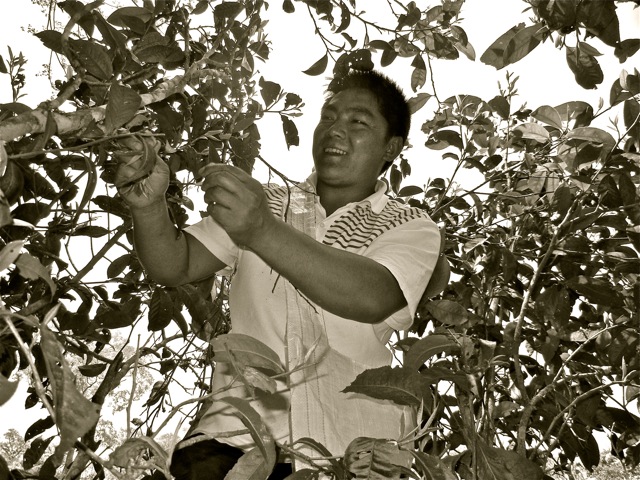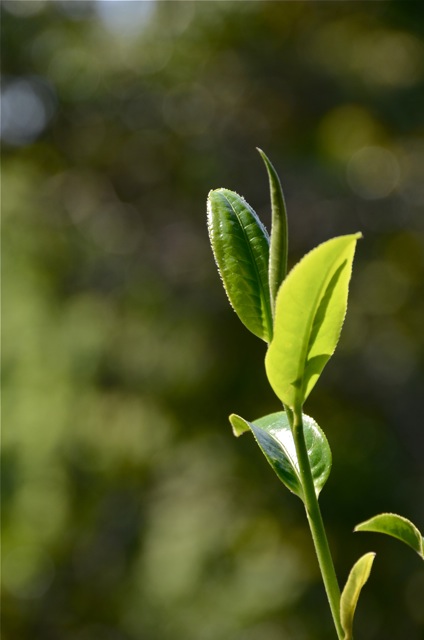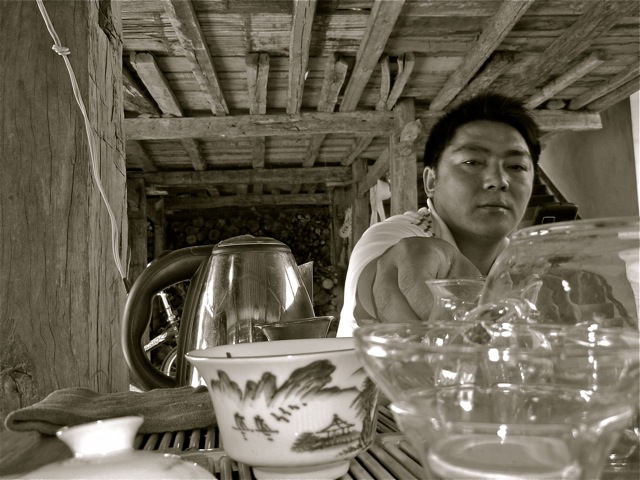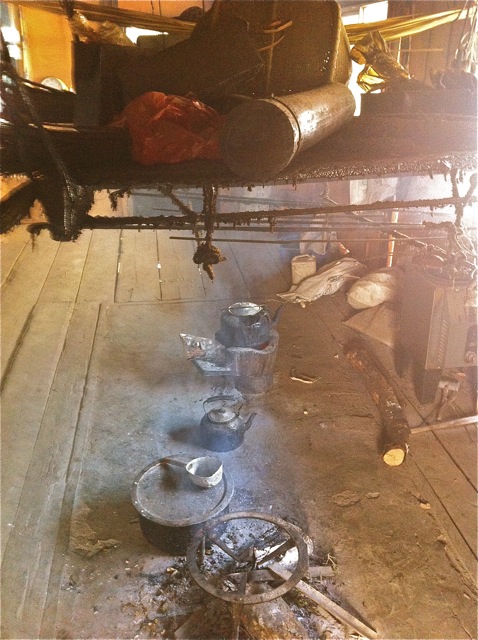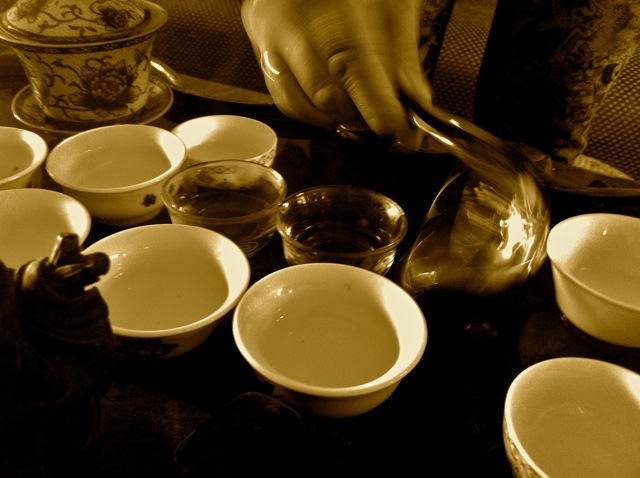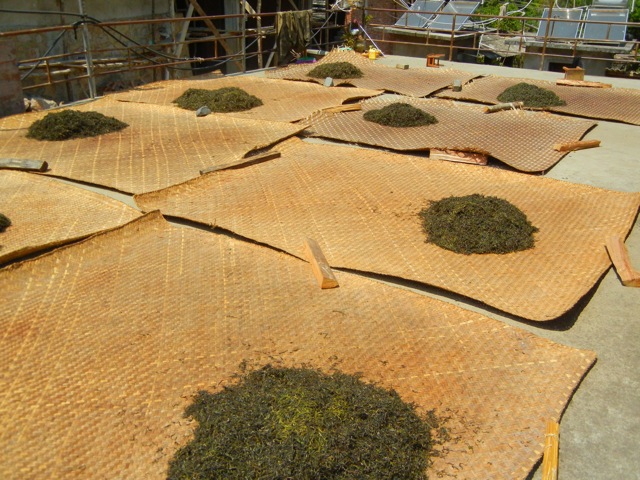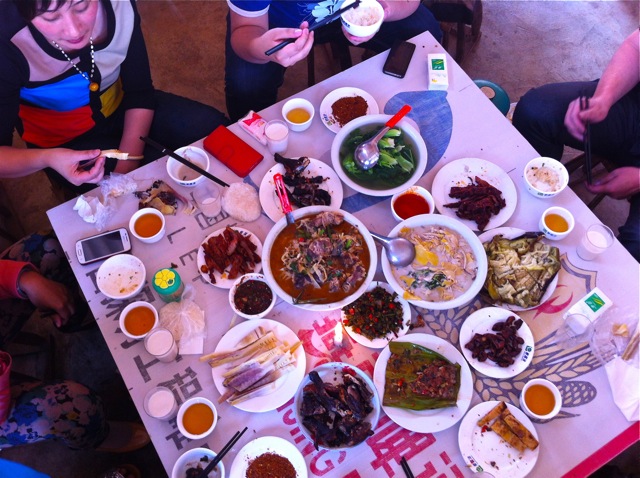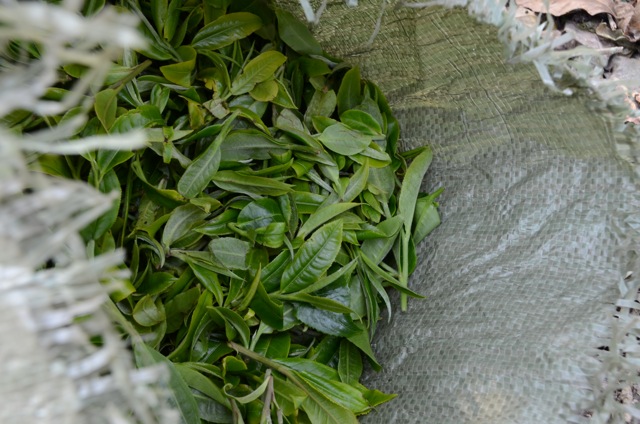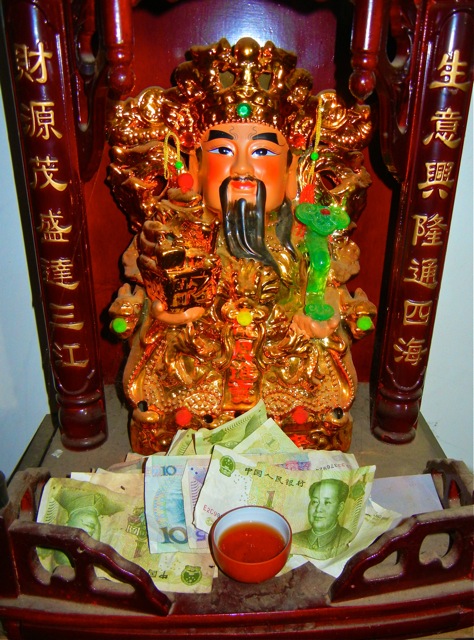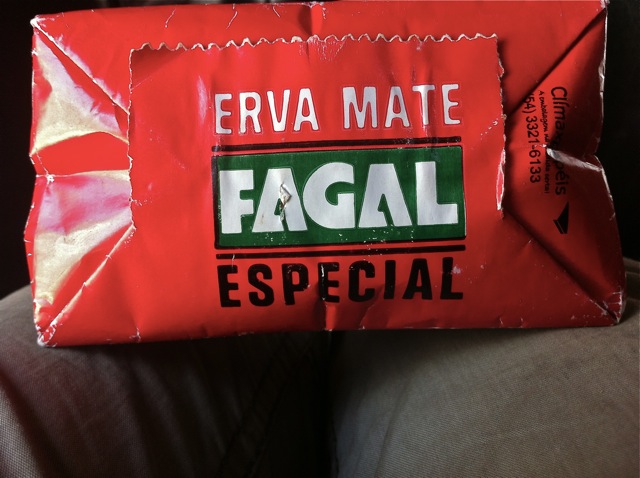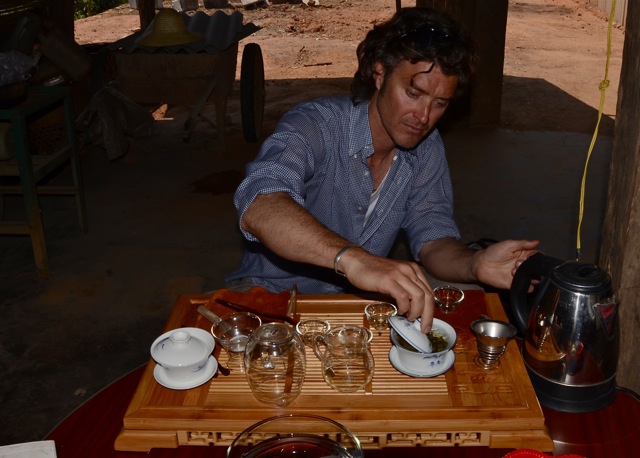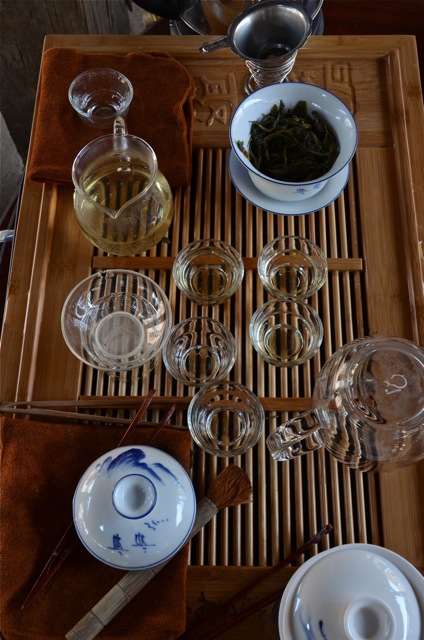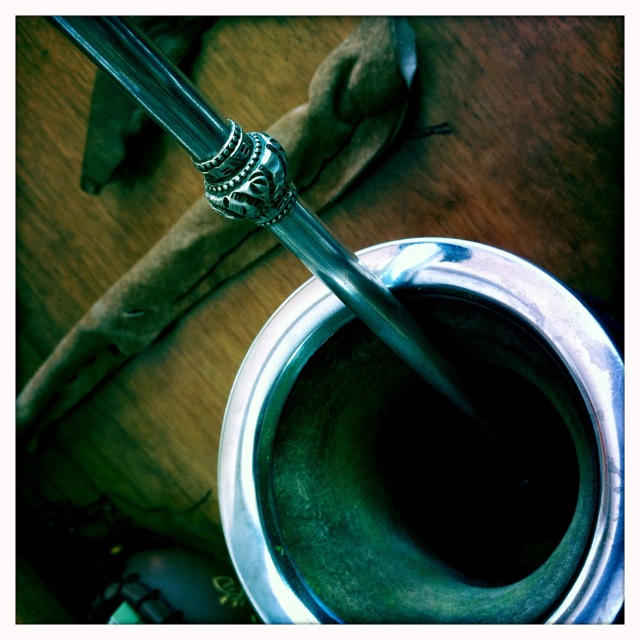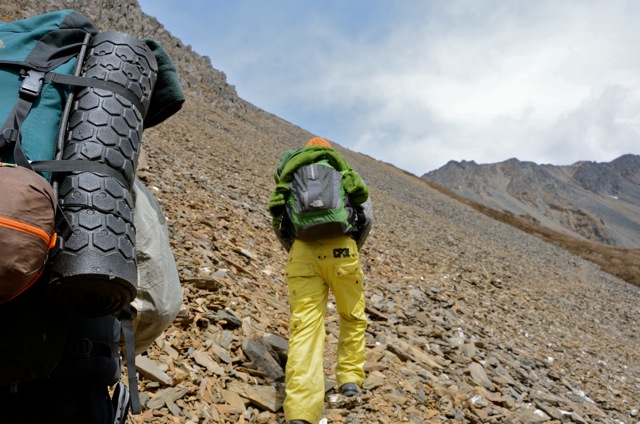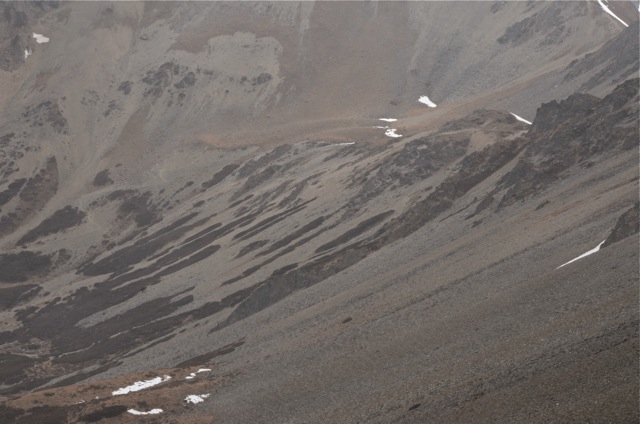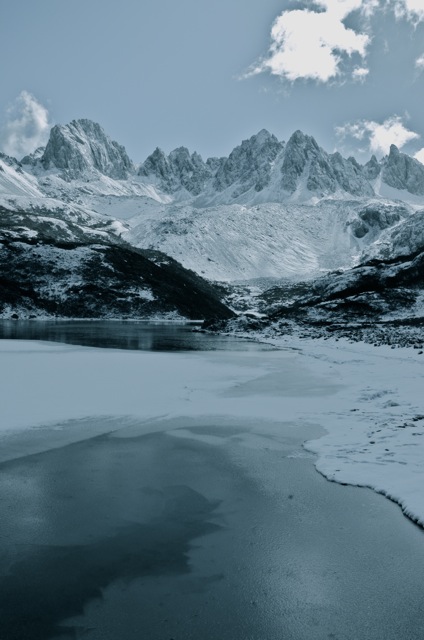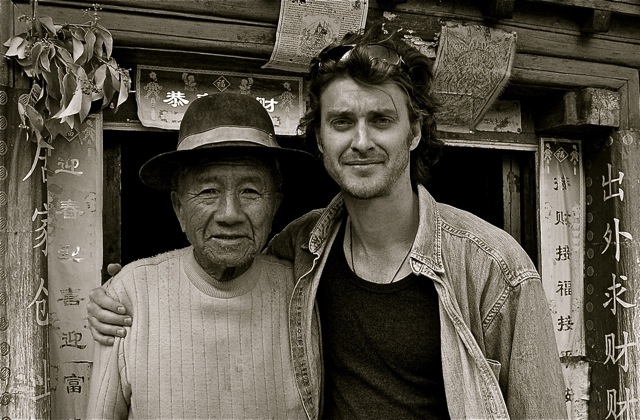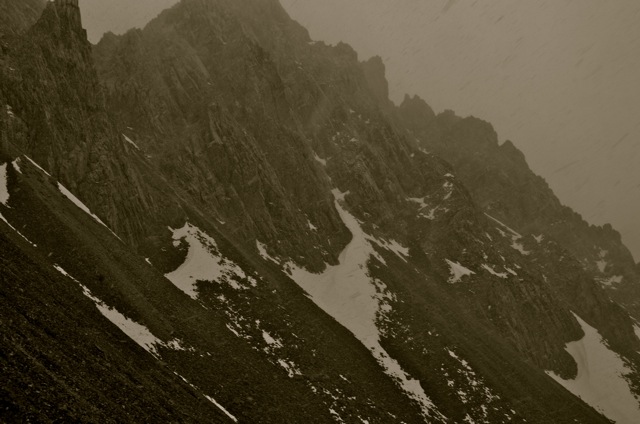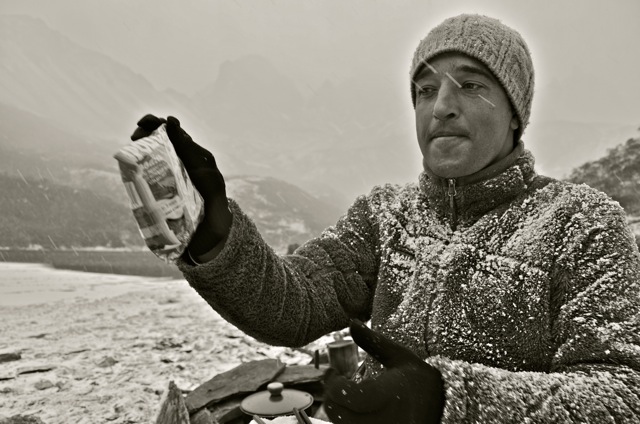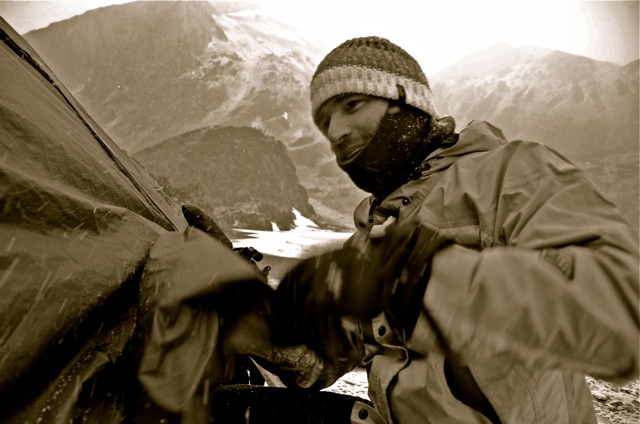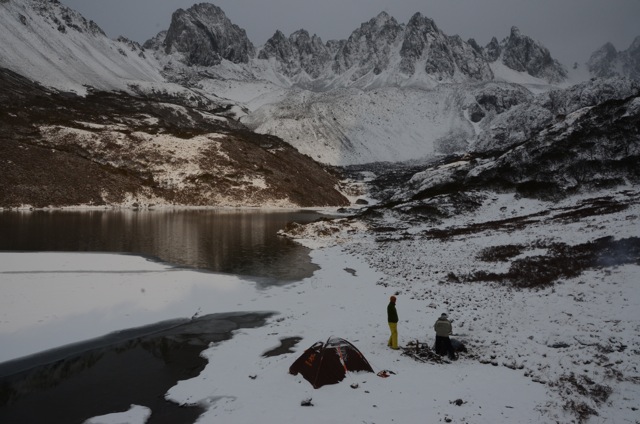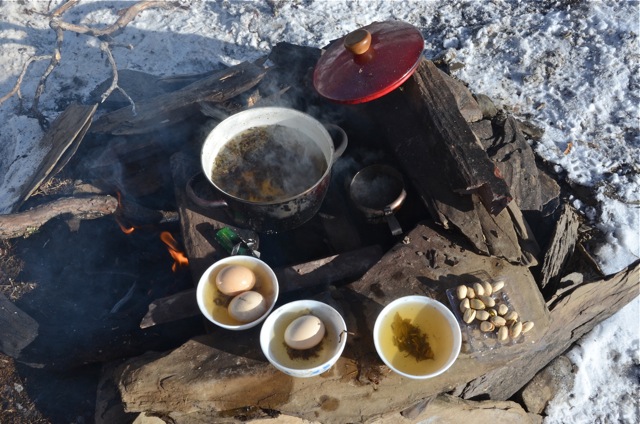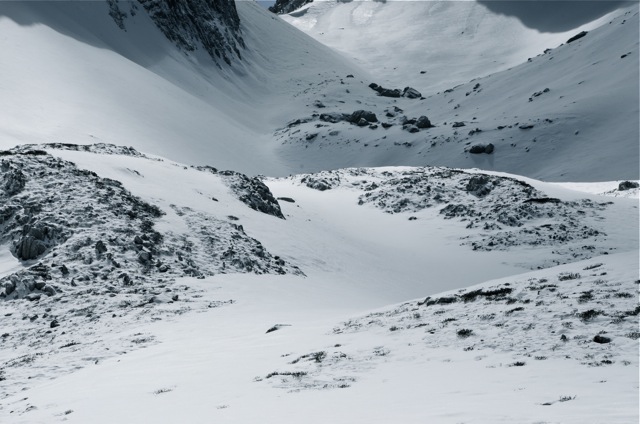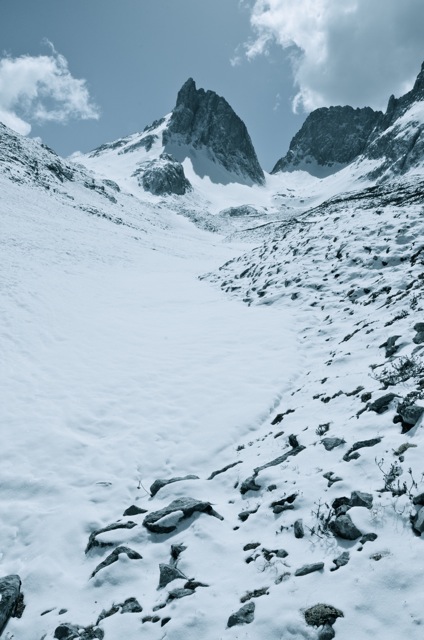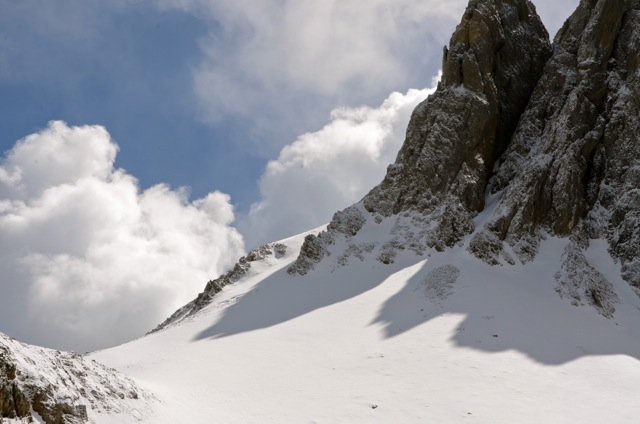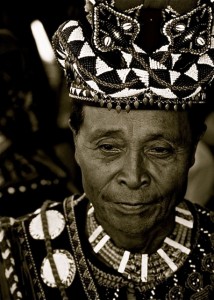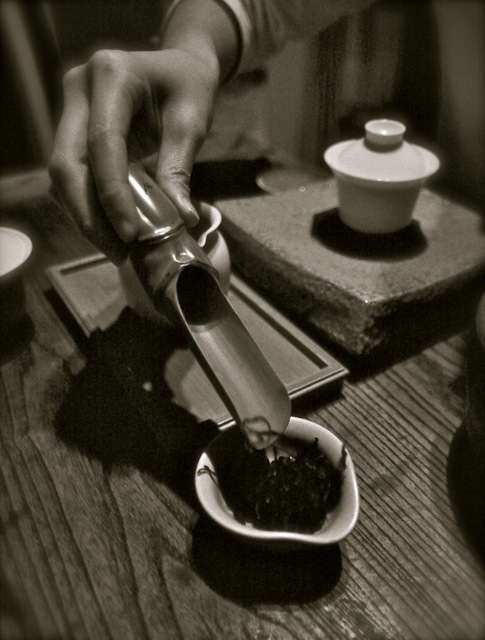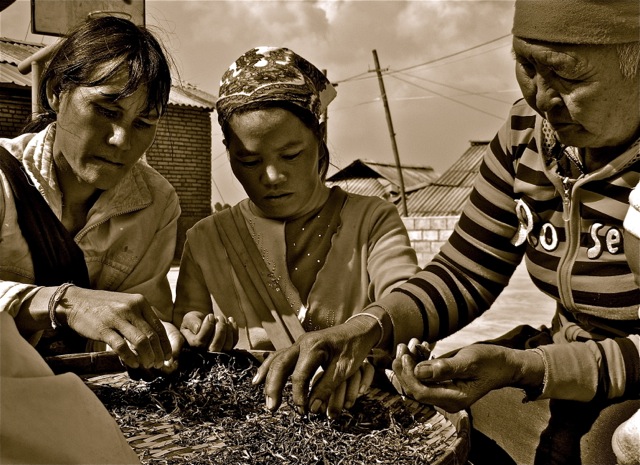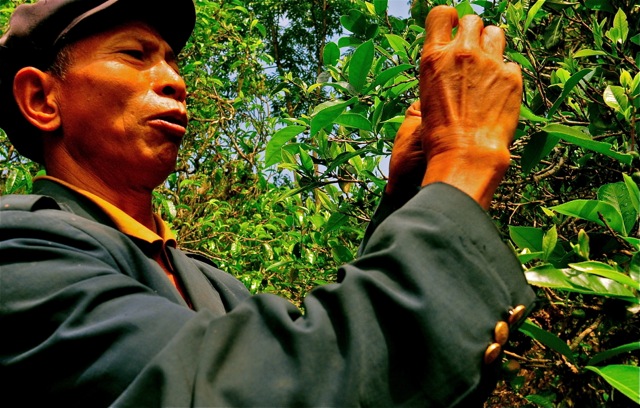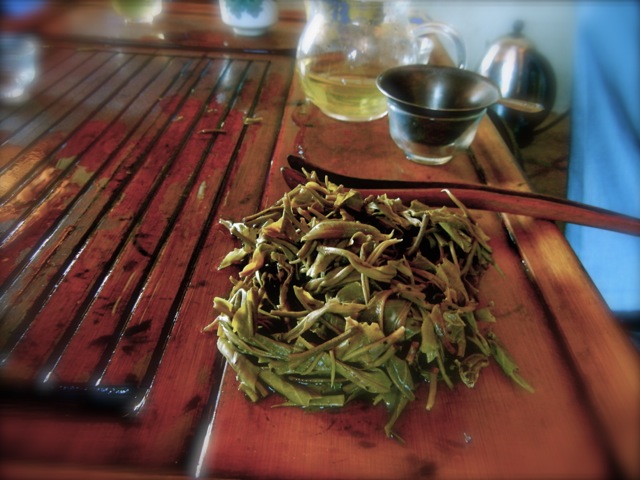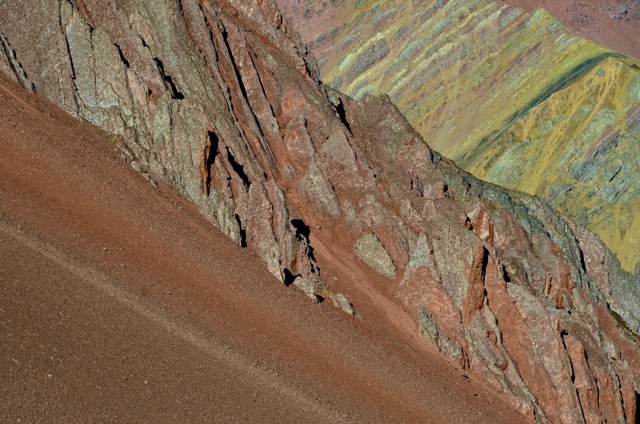Last days inevitably require ‘last sips’, though no sips will really be ‘last’ ones when it comes to tea. Having left Lao Banzhang, Marco and I head back to our base of food, operations, community, and what is left of our clean laundry: Menghai. Our little stockpile of tea samples grows in girth and it is one of Marco’s joys to watch as this ‘collection’ of green gifts grows.
Last moments in Banzhang were spent trying to figure out which transport to take back to the Menghai. We ended up taking one of the classic and true wonders of the world of rural China: the 1.1 liter vehicle I simply call ‘a surprise’. With little power, but a surprising heart these miniscule vehicles punish the buttocks and craniums of any who dare to sit within. The two different options in term of roads to take back to Menghai offer up a choice of either ‘masochistically demoralizing’ or jaw clenching – forearm cramping. It is simply part of anyone’s journey who wants to arrive (or leave) the tea sanctum.
We arrive to Menghai nicely addled. Menghai, like much of the surrounding smoky hills, continues its growth with structures and buildings that don’t seem quite to match the terrain, shooting up all over the southwest portion of town. Much of its growth is on the stimulant back of tea profits. Dusty, weather-worn tea bosses with stained fingers from the distant villages are splurging on apartments in town so that during tea’s rare ‘off-seasons’ they too can play at being city-folk.
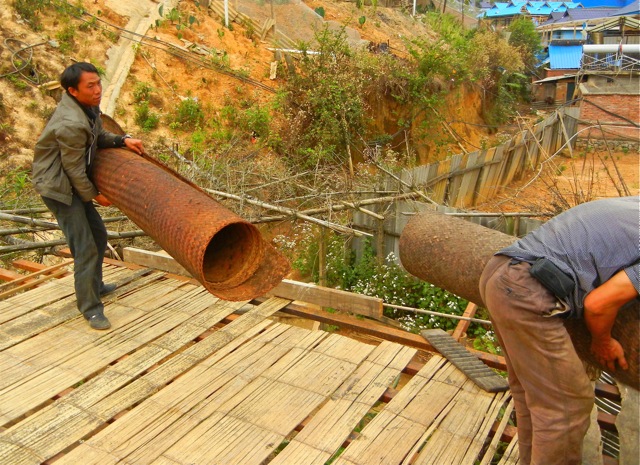
Cleaning up tea, and the paraphernalia of the tea drying process as rain begins to fall in Lao Banzhang
We both have added to our stashes of tea, with the welcome addition of two cakes of Banzhang cakes from the ancient trees. We both have the slightly gaunt looks of addicts and the amounts of tea that have come, gone, and come again, have been magnificent in sheer volume and quality. Tea’s grip on us is entirely complete.
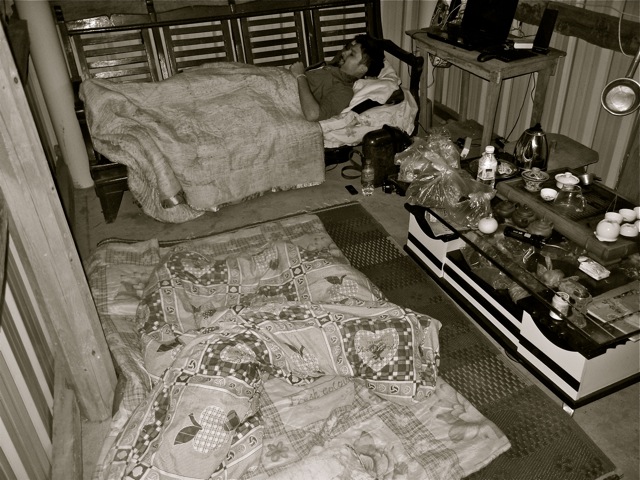
One of the dozen or so places where Marco and I sleep; in this case a tea house where blankets and mattresses have been laid down
Time here in the south doesn’t so much bleed away, as it does get washed away in waves of tea and our three-week journey into, through, and with tea and its people. One of the great joys is that after a while this ‘city’ of Menghai inevitably seems to revert back to its village atmosphere. Friends greet with shrill screams across streets, ‘people of the tea’ – who are old friends of mine – will stop their vehicles to chat with Marco and I, while simultaneously blocking all traffic.
In some cases these friends will literally chuck a sample bag of tea to us out of a window. My hope is that this feeling and informality isn’t squandered away in the rush of development because it is exactly this slow way, this way of listening and taking time to be with others that makes my journeys here so worthwhile…that and of course the tea.
A few last dinners – all taking place on the same evening – are had. One last meal is with a gathering of tea buyers, sellers, growers, producers and though initially there isn’t much talk of tea, the green leaf becomes the discussion. Everyone sitting at that table is linked by the leaf, and even the restaurant owner is in on the act being “a friend of a friend of a family member of a…” I’m not sure how payment for the meal is made but in China it is often this way in the rural regions: someone will pay the patron of the restaurant on a trip to the washroom, or in some cases someone is owed the meal, or sometimes a tab is simply kept, and there will be payment made at some point. In the end it inevitably works out and everyone is sastisfied.
Marco and I are by extension invited to another meal that same evening and that second meal is forced upon us as though we haven’t yet eaten, that somehow we have to be compensated for all of the calories that the quantities have taken from us. Marco and I now have wordless conversations with eyes and hands and dipping of the chin, which communicate so much. Full stomachs, fear of drinking yet another shot of firewater and even pleasure…all of it is expressed with a few glances, grunts or wrinkled forehead.
Breathless and straining at the belt we finally bid our farewell and make for one of our many Menghai safe houses: a friend’s tea house. It has been his way since we arrived weeks ago and it has been this way for me for years in this sub-tropic city that grows: every night a few last sips before bed of any tea we fancy. Marco is now fully indoctrinated as to what teas are ‘safe’ at night and what teas will play with the nerves and wire the system for a sleepless night.
This last evening has us tucking into a 2007 Jingmai ‘gu shu’ (old tea tree) that has been stored in a bamboo husk, taking some of the sweetness of the husks inner skin. The caffeine levels have dropped off with the years and the colour has stained into a nice copper colour. With us in the tea house are the usual suspects. Friends, families, the odd dog, all chatting – the dogs get bored and generally go outside to sniff at the dusty evening air – and sipping, and chatting some more. This is an every night affair rather than anything exceptional; or rather it is exceptional because it does occur every night.
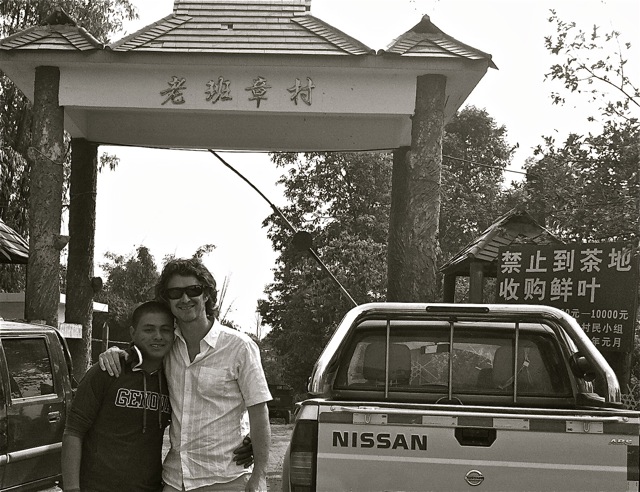
In front of the gates of Lao Banzhang, with a warning (on the right) not to buy raw tea leaves, but rather prepared teas. Laws within the tea meccas are strictly enforced.
Our Jingmai tea hits the mouth with a nice iron-veg hit, scraping the gums with its maturing and lasting flavours. Tea’s great ability is to create impressions in the mouth as opposed to give off tastes. A single tea will hit palates entirely differently, though this present 2007 seems to be a pleaser for most. Our hostess of the moment (and the actual tea server may be the equivalent of a spinning chair as there seems to be a new server every twenty-minutes) tells us that the ‘creator’ of this particular tea is an old friend that I have met. This informal explanation of who the ‘maker’ of the tea is the equivalent in this world of providing a bio of a vintner or a chef’s resume, as it links the leaf and the taste back to a person.
Marco has to ensure – even with this less potent tea – that he doesn’t simply shoot down shots of the stimulant green as is his habit. Small cups of tea can quickly build up in the system until a kind of euphoria is reached; a euphoria that pushes the pulse and keeps the body fully wired well into the wee hours. This tea – whatever other qualities it has – finishes with a nice massaging of the throat as it disappears. The bamboo influence and age of the tea help to provide this feeling.
At 11 am as it seems that bodies are slowly leaving the tea shop, Marco and I prepare our bags, our teas, and our brief good-byes, when still more bodies (a second or third wave of latecomer friends) bursts into the tea shop. More teas are prepared…and Marco and I decide that we will depart the following day later than planned for Jinghong and our inevitable departure north. How can we pass up another series of rounds of spectacular teas, tea people, discussions, debate, and tea highs? “We cannot”, is our rather practical answer. Dropping our bags and teas back down, we sit down like two little boys and hoist the latest cup of stimulant green and accept that sleep will most likely arrive as a purple dawn inks the morning sky.

